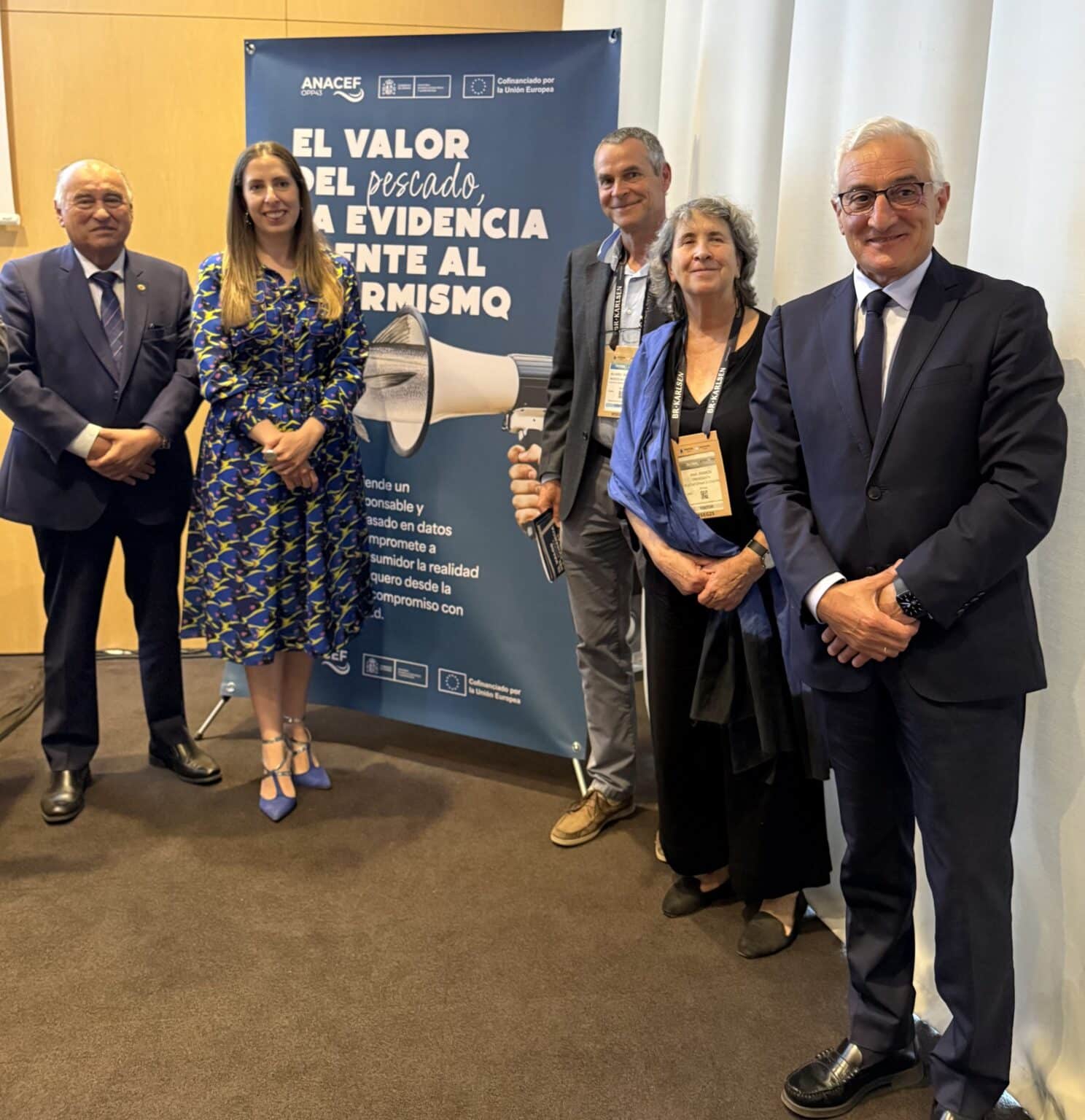Sure! Here’s the translation into American English:
—
At the International Fair in Barcelona, the ANACEF Fishing Producers Organization organized a panel of experts aimed at combating the alarmism surrounding fish consumption. Under the slogan “The Value of Fish: Evidence Against Alarmism,” scientists and communicators gathered to highlight the nutritional and sustainable virtues of this food, which is often questioned by the media.
The event’s moderator, scientist Déborah García, began her remarks by denouncing the prevalence of negative narratives about fish. García pointed out that, despite the health benefits of this food, such as protection against cardiovascular and neurodegenerative diseases, headlines tend to focus on dangers like mercury or anisakis. This perspective distorts the image of fish and fosters unfounded fear that affects its consumption.
Allergist Álvaro Daschner dismissed any significant risk of anisakis allergy in properly cooked or frozen fish. In his over 25 years of experience, he has not recorded any cases of allergies caused by these proper practices. “The real problem is the unjustified fear that has been generated. The risk only exists in poorly treated raw fish,” he asserted.
García added that 10% of respondents in a study by the Federation of Nutritionists have decreased their fish intake due to fear of mercury, and 6% have done so because of anisakis. She stated that both risks can be mitigated with basic measures. “We are losing consumption due to unfounded fears that lack scientific basis,” she warned.
The panel also addressed the environmental footprint of fish, highlighting its efficiency compared to other animal products. “Fish has a carbon footprint up to ten times lower per amount of protein than other animal sources,” explained one speaker. Additionally, its essential role in a balanced diet and the sustainability of food systems was reiterated.
Ana Ramos, a researcher at the Spanish Institute of Oceanography, emphasized the sustainable fishing practices of the Spanish fleet. She stressed that these practices are not only mandatory but also part of a culture of commitment to the environment. She shared an example from Mauritania, where an extensive coral reef has been found, mentioning that ANACEF vessels operate without directly impacting that barrier.
The event concluded with a call for collaboration between the fishing sector, the scientific community, and the media. Déborah García emphasized that it is crucial to broaden the narrative around fish, calling for more campaigns and a joint approach to advocate for its consumption. Francisco Freire, president of ANACEF, and Juan Carlos Martín Fragueiro, the organization’s managing director, reiterated the importance of a data-driven debate.
—
Let me know if you need any adjustments!
Source: MiMub in Spanish










